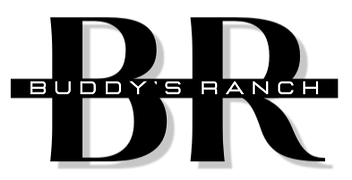
Yuba City, California, United States
Buddy's Ranch
Verified
Verified
This provider’s information has been quality-checked by Recovery.com’s Research Team for accuracy and completeness, including center verification through appropriate third-party organizations.
Joint Commission Accredited
The Joint Commission accreditation is a voluntary, objective process that evaluates and accredits healthcare organizations (like treatment centers) based on performance standards designed to improve quality and safety for patients. To be accredited means the treatment center has been found to meet the Commission's standards for quality and safety in patient care.
Provider's Policy
Please contact Buddy's Ranch to learn more about insurance coverage and payment options.
Estimated Cash Pay Rate
The cost listed here (Call for rates) is an estimate of the cash pay price. Center pricing can vary based on program and length of stay. Contact the center for more information. Recovery.com strives for price transparency so you can make an informed decision.
Highlights from the Center
Highlights
These highlights are provided by and paid for by the center.
1-on-1 Counseling
Customized Treatment Plans
Doctor Level Therapists
Tech Friendly
About Buddy's Ranch
Buddy’s Ranch provides comprehensive treatment for substance use, mental health, and co-occurring disorders through a range of flexible program durations and levels of care. They offer detox, residential treatment, and outpatient programs, each tailored to meet the unique needs of clients. With a smaller, home-like setting and 24/7 medical monitoring, Buddy’s Ranch creates a safe, community-oriented environment that fosters healing and long-term recovery.
Address Physical, Emotional, and Spiritual Needs
Buddy’s Ranch combines evidence-based practices with holistic methods to empower clients to make positive changes in their lives. Cognitive behavioral therapy (CBT) helps clients change negative thought patterns and behaviors, while dialectical behavior therapy (DBT) builds skills in mindfulness, emotional regulation, distress tolerance, and interpersonal effectiveness. Buddy’s Ranch integrates 12-Step principles and support groups like Alcoholics Anonymous (AA) and Narcotics Anonymous (NA) for peer accountability. Clients also benefit from art therapy, meditation and deep breathing, and structured wellness activities such as exercise, yoga, and nutrition education.
Receive Tailored Mental Health Support
Their mental health treatment outpatient programs are well-suited for clients who are dealing with a variety of mental health challenges. This includes support for depression, anxiety, post-traumatic stress disorder (PTSD), eating disorders, and more. Buddy’s Ranch also provides residential treatment for clients with substance use and co-occurring mental health disorders (dual diagnosis).
Live in a Close-Knit Community
Buddy’s Ranch provides a welcoming and comfortable environment that feels like home. Their two residences, one for men and one for women, offer a serene and intimate place to focus on recovery. The homes have private and shared bedrooms, and only 6 beds in each house. This smaller, more personal environment fosters a sense of community and allows for more focused, individualized care. Their home-like setting includes amenities such as a kitchen, swimming pool, outdoor fireplace, and backyard.
Read More
Insurance Accepted
Provider's Policy:Please contact Buddy's Ranch to learn more about insurance coverage and payment options.
Thrive in Gender-Specific Housing
Buddy’s Ranch offers gender-specific housing and programs to create a safe, supportive space for clients to heal from addiction. These tailored environments address gender-specific concerns, such as body image, social pressures, trauma, and motherhood for women, and mental health stigma, shame, and high-risk behaviors for men.
Strengthen Recovery with Medication-Assisted Treatment
Detox at Buddy’s Ranch provides a safe, medically supervised environment to help clients eliminate harmful substances from their bodies while managing withdrawal symptoms with care and compassion. They combine medication-assisted treatment (MAT) with counseling and behavioral therapies to address opioid and alcohol addiction, reduce cravings, and ease withdrawal. Additionally, MAT may be used to treat co-occurring mental health conditions, ensuring clients receive comprehensive support for long-term recovery.
Embrace Adventure as Part of Healing
Buddy’s Ranch incorporates adventure therapy into their treatment programs, using outdoor activities like hiking, paddleboarding, fishing, and rope courses to promote healing and personal growth. Conducted in a group setting, adventure therapy fosters teamwork and connection as clients engage in activities under the supervision and guidance of a therapist. This dynamic approach combines fun, nature, and therapy to support recovery and well-being.
Access Care from Anywhere with Telehealth
By choosing telehealth services at Buddy’s Ranch, clients can access care from anywhere, eliminating the barriers of distance and travel. Their secure virtual platforms ensure privacy and confidentiality, while flexible scheduling accommodates busy lifestyles, minimizing disruptions to work, family, and other commitments. Regular telehealth sessions provide consistent support and accountability, essential for recovery and mental health treatment.

Center Overview
Estimated Cash Pay Rate
Executives
Executive treatment programs typically directly support the needs of people who manage businesses and may provide flexible schedules and office space to allow work during treatment.
LGBTQ+
Addiction and mental illnesses in the LGBTQ+ community must be treated with an affirming, safe, and relevant approach, which many centers provide.
Men and Women
Men and women attend treatment for addiction in a co-ed setting, going to therapy groups together to share experiences, struggles, and successes.
Professionals
Busy, high-ranking professionals get the personalized treatment they need with greater accommodations for work, privacy, and outside communication.
Veterans
Patients who completed active military duty receive specialized treatment focused on trauma, grief, loss, and finding a new work-life balance.

Treatment Focus
You can admit to this center with a primary substance use disorder or a primary mental health condition. You'll receive support each step of the way and individualized care catered to your unique situation and diagnosis.
Treatment
Specializations
Alcohol
Using alcohol as a coping mechanism, or drinking excessively throughout the week, signals an alcohol use disorder.
Depression
Symptoms of depression may include fatigue, a sense of numbness, and loss of interest in activities. This condition can range from mild to severe.
Drug Addiction
Drug addiction is the excessive and repetitive use of substances, despite harmful consequences to a person's life, health, and relationships.
Prescription Drugs
It's possible to abuse any drug, even prescribed ones. If you crave a medication, or regularly take it more than directed, you may have an addiction.
Gender-Specific
Separate treatment for men or women can create strong peer connections and remove barriers related to trauma, shame, and gender-specific nuances.
Treatment Services
Detox
Detox fully and safely removes toxic substances from the body, allowing the next steps in treatment to begin with a clean slate.
Intensive Outpatient Program
In an IOP, patients live at home or a sober living, but attend treatment typically 9-15 hours a week. Most programs include talk therapy, support groups, and other methods.
Outpatient
During outpatient rehab, patients attend a structured treatment program while continuing to live at home.
Residential
In a residential rehab program, patients live onsite, with access to daily treatment and 24-hour care. An average stay is 30-90 days.
Approaches
Evidence-Based
A combination of scientifically rooted therapies and treatments make up evidence-based care, defined by their measured and proven results.
Holistic
A non-medicinal, wellness-focused approach that aims to align the mind, body, and spirit for deep and lasting healing.
Gender-Specific
Separate treatment for men or women can create strong peer connections and remove barriers related to trauma, shame, and gender-specific nuances.
Therapies
1-on-1 Counseling
Patient and therapist meet 1-on-1 to work through difficult emotions and behavioral challenges in a personal, private setting.
Meditation & Mindfulness
A practiced state of mind that brings patients to the present. It allows them to become fully aware of themselves, their feelings, and the present moment.
Attachment-Based Family Therapy
ABFT is a trauma-focused therapy that teaches you to form healthy relationships by rebuilding trust and healing attachment issues formed in childhood.
Art Therapy
Visual art invites patients to examine the emotions within their work, focusing on the process of creativity and its gentle therapeutic power.
Experiential Therapy
With this approach, patients heal by doing. Therapists help patients process difficult emotions to speak, using guided activities like art or dance.
Life Skills
Teaching life skills like cooking, cleaning, clear communication, and even basic math provides a strong foundation for continued recovery.
Medication-Assisted Treatment
Combined with behavioral therapy, prescribed medications can enhance treatment by relieving withdrawal symptoms and focus patients on their recovery.
Nutrition Counseling
Nutritious food helps patients heal from within, setting them up for mental and bodily wellness as they learn about healthy eating.
Conditions We Treat
Schizophrenia
Schizophrenia is a serious mental health condition that causes hallucinations, delusions, and disordered thinking.
Grief and Loss
Grief is a natural reaction to loss, but severe grief can interfere with your ability to function. You can get treatment for this condition.
Personality Disorders
Personality disorders destabilize the way a person thinks, feels, and behaves. If untreated, they can undermine relationships and lead to severe distress.
Anger
Although anger itself isn't a disorder, it can get out of hand. If this feeling interferes with your relationships and daily functioning, treatment can help.
Anxiety
Anxiety is a common mental health condition that can include excessive worry, panic attacks, physical tension, and increased blood pressure.
Bipolar
This mental health condition is characterized by extreme mood swings between depression, mania, and remission.
Depression
Symptoms of depression may include fatigue, a sense of numbness, and loss of interest in activities. This condition can range from mild to severe.
Eating Disorders
An eating disorder is a long-term pattern of unhealthy behavior relating to food. Most people with eating disorders have a distorted self-image.
Obsessive Compulsive Disorder (OCD)
OCD is characterized by intrusive and distressing thoughts that drive repetitive behaviors. This pattern disrupts daily life and relationships.
Post Traumatic Stress Disorder
PTSD is a long-term mental health issue caused by a disturbing event or events. Symptoms include anxiety, dissociation, flashbacks, and intrusive thoughts.
Substances We Treat
Alcohol
Using alcohol as a coping mechanism, or drinking excessively throughout the week, signals an alcohol use disorder.
Benzodiazepines
Benzodiazepines are prescribed to treat anxiety and sleep issues. They are highly habit forming, and their abuse can cause mood changes and poor judgement.
Co-Occurring Disorders
A person with multiple mental health diagnoses, such as addiction and depression, has co-occurring disorders also called dual diagnosis.
Cocaine
Cocaine is a stimulant with euphoric effects. Agitation, muscle ticks, psychosis, and heart issues are common symptoms of cocaine abuse.
Drug Addiction
Drug addiction is the excessive and repetitive use of substances, despite harmful consequences to a person's life, health, and relationships.
Ecstasy
Ecstasy is a stimulant that causes intense euphoria and heightened awareness. Abuse of this drug can trigger depression, insomnia, and memory problems.
Heroin
Heroin is a highly addictive and illegal opioid. It can cause insomnia, collapsed veins, heart issues, and additional mental health issues.
Psychedelics
Hallucinogenic drugs—like LSD—cause euphoria and increased sensory experiences. When abused, they can lead to depression and psychosis.
Methamphetamine
Methamphetamine, or meth, increases energy, agitation, and paranoia. Long-term use can result in severe physical and mental health issues.
Opioids
Opioids produce pain-relief and euphoria, which can lead to addiction. This class of drugs includes prescribed medication and the illegal drug heroin.
Experience
Personal Amenities
Amenities
Special Considerations
Executive Program
Addiction and mental health treatment for executives typically involves high discretion, greater technology access, and more private, 1-on-1 care.
Flexible technology policies
Centers with flexible technology policies allow professionals to stay in touch with work and give patients a greater sense of connection and normalcy.
Gender-specific groups
Patients in gender-specific groups gain the opportunity to discuss challenges unique to their gender in a comfortable, safe setting conducive to healing.
Professional Staff

David I. Deyhimy
Medical Doctor
M.D., FASAM

Adam Swanson
Sessions Family Therapy
LMFT

Julie Boyden
Program Director
CADC-II

James Johnson
AMFT
Learn more about Buddy's Ranch
Accommodations
Food & Nutrition
Treatment
Value
Pros
- Beautiful Location (11)
- Family Program (4)
- Friendly and Competent Staff (5)
- Supportive Aftercare (13)
Jason
Amber W
Adeline
Jessica
Natalie C
We love hearing about your treatment experience
Help individuals and families seeking treatment by sharing your first-hand experience with this treatment provider. Review Guidelines.










































